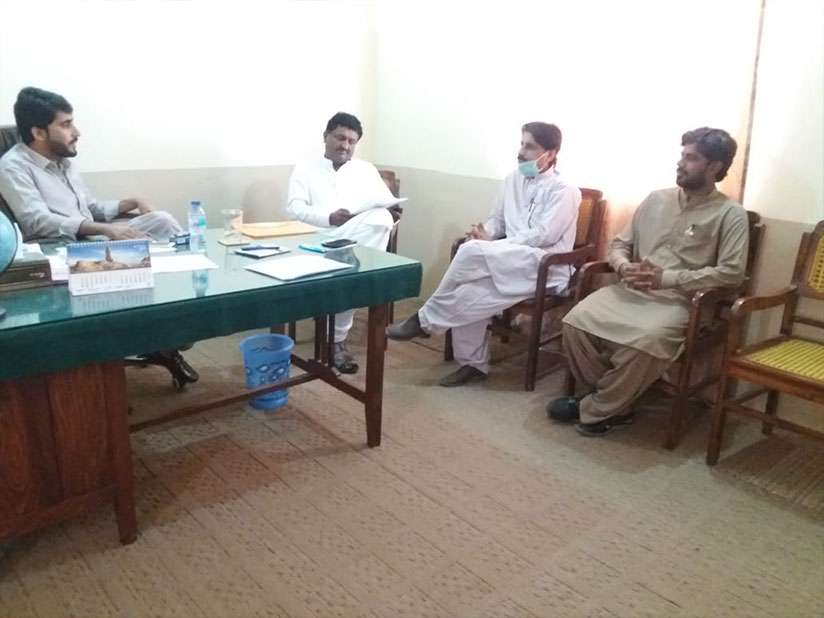I am delighted to write this note for the European Union supported Balochistan Rural Development and Community Empowerment (BRACE) Programme website being jointly hosted by the Local Government and Rural Development Department (LGRDD), Government of Balochistan and the BRACE Programme.
After reviewing 200 years of global experiences, Dr Akhter Hameed Khan concluded that three institutional pillars are necessary for making transformative change in the lives of the rural poor. These pillars are: i) the Administrative Pillar (central, provincial, and local governments and departments, judiciary, police and other institutions – from the president to the patwari); ii) the Political Pillar (national and provincial assemblies, district and union councils); and iii) the Socio-economic Pillar (people’s own institutions i.e. COs, VOs, and LSOs). Pakistan possesses the first two pillars but the socio-economic pillar is missing, and without fostering this pillar and linking it with the political and administrative pillars, poverty cannot be sustainably reduced. Fostering the socio-economic pillar requires an institutional mechanism, which has the resources of the government and flexibility of an NGO – such as the Rural Support Programmes. The RSPs, through social mobilisation and organisation of rural people into their own institutions, are able to reach out to each poor household. Without the economic empowerment of individual households, poverty cannot be eliminated. The RSPs, thus complement and supplement the work of the government.
The Rural Support Programmes’ (RSPs) social mobilisation approach to community driven development (CDD) is based on the belief that every poor household has an innate potential to overcome poverty. However, households face socio-economic constraints that hinder harnessing their potential and improving their lives. Over forty-seven years ago my mentor Dr Akhter Hameed Khan gave me my first lessons in forging partnerships with communities. Dr Akhter Hameed Khan emphasised the need for fostering a Socio-economic Pillar, namely, a framework of grassroots institutions of the rural poor to support improvement in their livelihoods and lives. Unlike the existing Administrative and Political Pillars, the Socio-economic Pillar focuses at the household level. For it is at the household level that the pain of poverty is experienced on daily basis, and also that the potential of coming out of poverty resides there.
RSPs social mobilisation approach has been used extensively as a way to achieve sustainable development at the household level. It does this by bringing communities together in order to better achieve their common-goals and to meet their needs. At the heart of the social mobilisation approach, lies the belief that every individual, be they poor or rich, man or woman, has the capability and potential to carry out activities for their own benefit and for that of their own families. The social mobilisation approach to development enables communities to identify, prioritise, plan and think about their developmental needs jointly. Mobilised communities enter into a partnership with the RSPs under which they are provided social guidance, financial and technical assistance. In addition to this, the RSPs help build their capacities and skills in order to help them start functioning as independent organisations and fostering development linkages with government, donors and private sectors agencies.
The RSPs are not meant to deliver services, instead their objective is to foster the Socio-economic Pillar to act as a receiving mechanism for the Administrative Pillar (Line Departments) to extend their outreach to the household level. In short, RSPs’ mission to is create the missing link: the third pillar; the Socio-economic Pillar through social mobilisation. With the Socio-economic Pillar in place, it can contribute significantly to towards inclusive development, strengthening citizen-state engagement and women’s empowerment.
The BRACE Programme is being implemented in nine districts by the Balochistan Rural Support Programme and National Rural Support Programme, with Rural Support Programmes Network providing technical support to the implementing partners. DAI is providing Technical Assistance to the overall BRACE Programme with a focus on strategic work for community-led local development policy development.
Already there are thousands of emerging examples of households initiating income generating activities, as well as many examples of linkages between the Socio-economic Pillar and the Administrative and Political Pillars. The BRACE website highlights many of these success. My request to the Balochistan Government is to use the Socio-economic Pillar to deliver services effectively and that the Line Departments will be able to reach each and every household to get maximum benefit.
I want to thank the European Union, the Government of Balochistan and the Local Government and Rural Development Department for their continuous support, and I hope that further support will be forthcoming for the fostering of the Socio-economic Pillar in the other districts of the Province.


















